If You See This While Driving, “Take an Alternate Route,” Police Say in New Warning
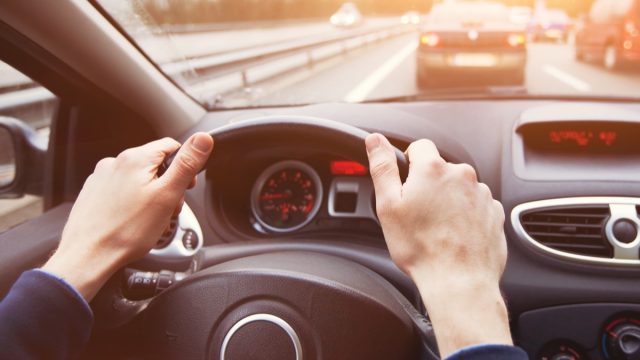
Getting your license was an equal parts thrilling and freeing experience, but now, driving is just a part of everyday life. Unless you live in a city and rely on public transportation, chances are you get behind the wheel daily to get to and from work, pick up your kids, or grab something from the supermarket for dinner. But if you’ve gotten so used to driving that you’re not paying the close attention you once did, a new warning from police might have you thinking twice. Authorities want you to keep an eye out for one thing while on the road. Read on to find out when they recommend that you “take an alternate route.”
READ THIS NEXT: Never Leave Your Car Without Doing This First, Police Say in New Warning.
Driving can be dangerous for a number of reasons.
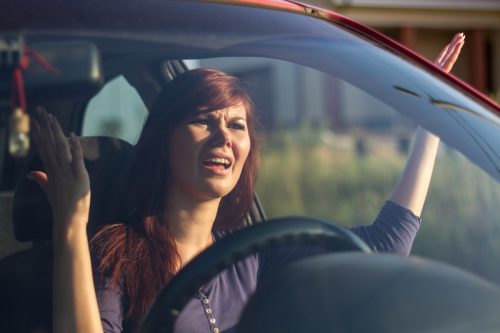
Police have their work cut out for them, between ensuring everyone is obeying traffic laws, stopping those who don’t, and responding to any accidents that may occur. Departments across the country have issued warnings about what drivers need to be mindful of, including an increase in reported road rage incidents leading to expressway shootings.
Illinois State Police (ISP) issued a press release alerting drivers to the uptick, with roughly 35 percent of expressway shootings in Chicago tied back to road rage incidents between January and mid-June 2022—a 12 percent increase from 2021. Drivers were asked to call 911 or ignore aggressive drivers, and not to engage or confront another driver when targeted.
In July, drivers were alerted to the dangers of stretching their gas tanks and accidentally running out of fuel. Brandon Karlen, a trooper with the Wisconsin State Patrol, told ABC-affiliate WAOW that drivers should pull over, put flashers on, and call the police if this happens while on a busy roadway.
Running on fumes is a bad habit you can break, but there are certain driving hazards that aren’t necessarily within your control.
The fall months introduce a new obstacle.
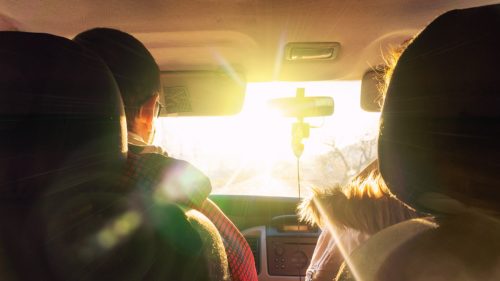
It may not seem like a major threat, but the sun can present dangers for drivers. In fact, police in Celina, Texas issued a new warning to drivers on Facebook on Oct. 18, citing an increase in accidents “due to blinding sun glare.”
According to drivers ed school Aceable, the glare on your windshield is caused by a sun sitting “low in the horizon,” which causes momentary loss of vision and is obviously distressing for drivers trying to keep their eyes on the road. This can even be dangerous if you’re not driving into the light and instead have it behind you. In that case, light “bounces off your rearview,” and then reflects off of traffic lights, creating another kind of blinding effect.
RELATED: For more up-to-date information, sign up for our daily newsletter.
Commuters face the biggest issues.
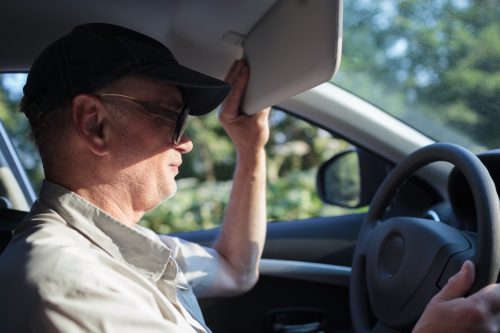
During the fall months, the sun’s glare worsens, and unfortunately for commuters, it’s particularly bad during the morning and evening. The sun is even lower in the sky, reflecting light on your windshield at a lower angle than it does in the summer, per Aceable.
“A lot of it is going east-west,” Celina Police Chief John Cullison told ABC-affiliate WFAA. “With the sun coming up in the morning and going down in the evening it just flips the script. Some people encounter that twice a day.”
While Cullison noted there were just a “handful” of crashes, it still warranted an official warning from police.
Consider altering your travel plans.
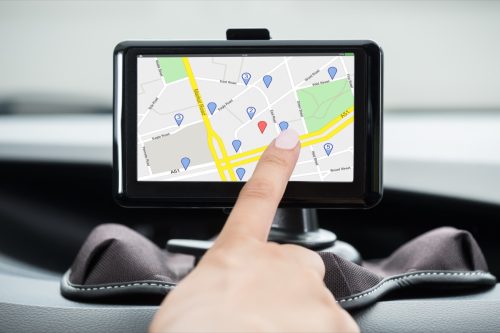
You might not have too much flexibility when it comes to your commuting hours, but you can switch up how you get there. If possible, the CPD recommends that drivers “take an alternate route” to avoid sun glare. Even if it will add a few minutes to your journey, you might experience less blinding light if there are more buildings or trees lining the road, which can provide shade. Finding roads less traveled, i.e. those with less traffic, will also make it easier and safer to navigate in bright sunlight.
The CPD further advises slowing down and putting distance between yourself and other cars on the road. Keep your sunglasses on hand—especially if they’re polarized, meaning they’re “anti-glare” and safer in the sun, according to the American Academy of Ophthalmology.
Keeping the interior and exterior of your vehicle clean, especially your windshield, is helpful as well, as is flipping down those sun visors.